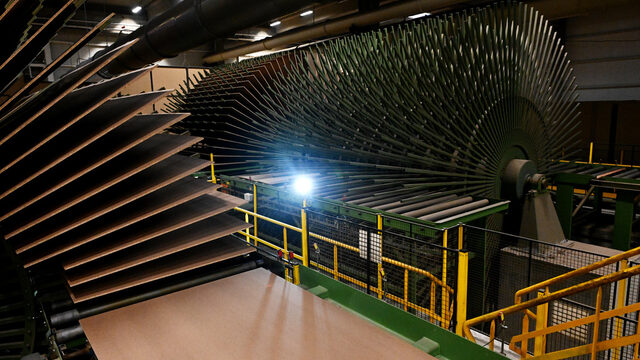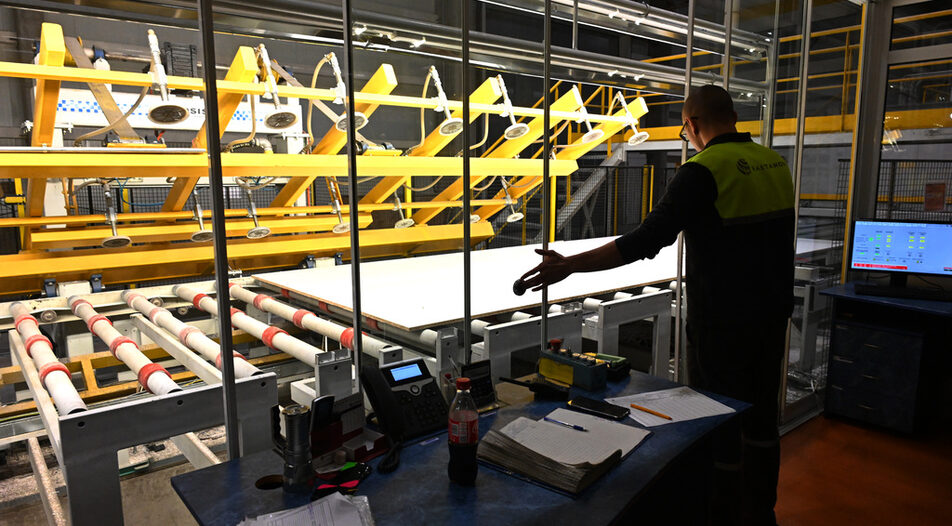Particle board manufacturer Kastamonu Bulgaria is preparing a 150 million levs (75 million euro) investment in its plant in the village of Gorno Sahrane, near the city of Stara Zagora. The investment will triple the plant's capacity, improve efficiency and raise the quality of the products. The project will help the company, which is part of Turkey's Kastamonu Entegre, to remain competitive and penetrate new markets.
An important first part of the plans is the construction of a formalin installation. That will make the plant independent of the import of the material for resins used in the production of particle boards. However, that preparatory project which is worth 30 million levs sparked protests in the region over fears of pollution.
Experts have a different view. The project has passed an environmental impact assessment and has been cleared by health and environmental authorities. In January, it was approved by the expert council at the environmental inspection in Stara Zagora. Nevertheless, in early March it was returned for revision by the environment minister.
Investment in independence
The project for expansion and modernization of the existing installation for resin production has two components. One is the construction of an installation for formalin, which is used in the production of resins that glue the board particles. The formalin installation will allow the company to increase its resin production capacity from 43,800 tonnes to nearly 80,000 tonnes and make two new varieties of resins.
That will ensure continuity of production, as the company will be independent of external suppliers. Currently formalin is imported from Turkey but supplies are sometimes insufficient in summer. "Besides, the quality worsens during transportation and that affects our end products," CEO Cagatay Piyadeci told the Capital Weekly. The company expects that the project will improve its profitability and stabilize its market positions.

The big project
The construction of the formalin installation is seen as an auxiliary project but it is a key stage of the company's plans to expand production. The aim is to boost the processing capacity from 590 cu. m of wood a day to 2,200 cu. m, though production will depend on market demand and the availability of wood. "We will most probably process between 1,600 and 1,800 cu. m a day, which means we will triple production," Piyadeci explained.
The number of workers will increase by 120 people. Currently the company employs 380 people and many of the processes are automated.
That in fact will be the second stage of Kastamonu's investment program. The company has already invested 100 million levs in quality improvements and production upgrade.
Competition and markets
The content of recycled materials in the plant's products is about 30%, with the remainder sourced from Bulgarian wood. Insufficient supply and rising prices of wood were a problem last year. "For the first time since we entered the Bulgarian market more than 22 years ago, we had to temporarily stop production almost every month in 2022 due to shortage of wood," Piyadeci said. He explained the company competes with Turkish producers, who use cheaper wood and have lower energy and labor expenses.
Kastamonu's core markets are North Macedonia, Kosovo, Greece, Bulgaria, Italy and Saudi Arabia. Customers are mainly furniture makers, as well as DIY stores.
The expansion project will allow the company to increase its exports. Piyadeci said the Bulgarian market is not a target for the additional quantities, as there are enough particle board producers and importers here.
Piyadeci said the company's 2022 were relatively good, though the year was difficult. "Compared to the preceding year, our sales decreased. However, in 2021 they jumped substantially, so last year's levels were acceptable," he explained. In 2021 Kastamonu's revenue went up by 29% to 136 million levs.
Particle board manufacturer Kastamonu Bulgaria is preparing a 150 million levs (75 million euro) investment in its plant in the village of Gorno Sahrane, near the city of Stara Zagora. The investment will triple the plant's capacity, improve efficiency and raise the quality of the products. The project will help the company, which is part of Turkey's Kastamonu Entegre, to remain competitive and penetrate new markets.
An important first part of the plans is the construction of a formalin installation. That will make the plant independent of the import of the material for resins used in the production of particle boards. However, that preparatory project which is worth 30 million levs sparked protests in the region over fears of pollution.












